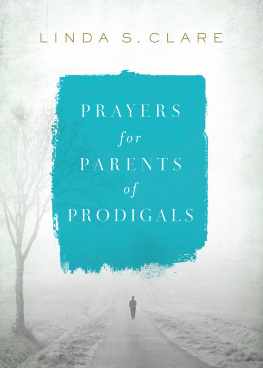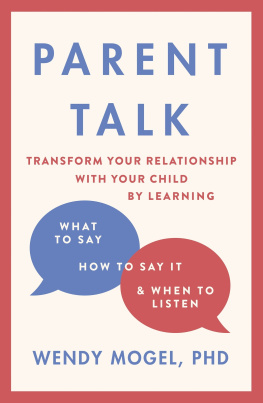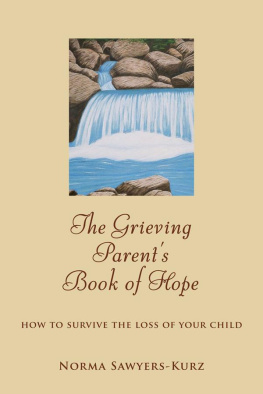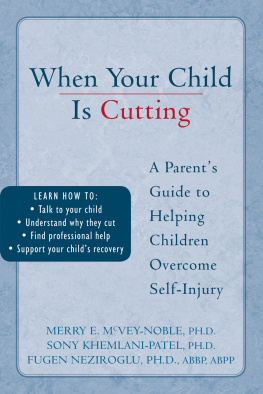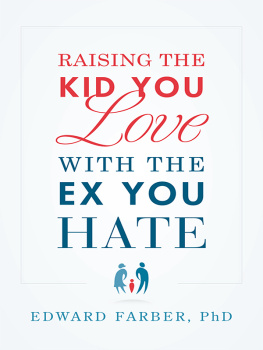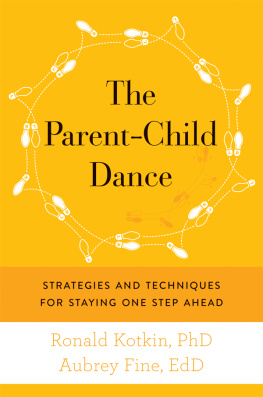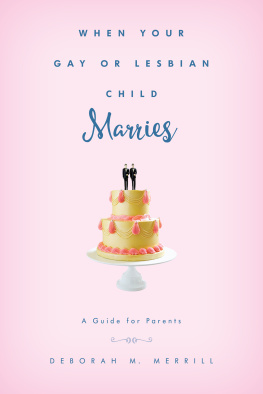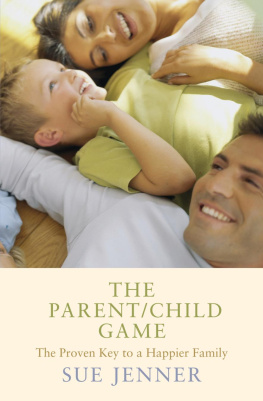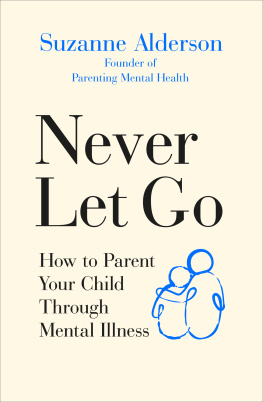
AUTHOR PHOTOGRAPH JENI EARL PHOTOGRAPHY
BRAD M. REEDY, PhD, is the cofounder and clinical director of Evoke Therapy Programs. An experienced psychotherapist and public speaker, he leads seminars on parenting, addiction, and mental health for professionals and clients. He is also the cofounder and former director of Second Nature Therapeutic Wilderness Programs. He has served on the boards of the Utah Department of Child and Family Services and the National Association of Therapeutic Schools and Programs. For more information, visit drbradreedy.com.

Regan Arts
65 Bleecker Street
New York, NY 10012
Copyright 2015 by Brad M. Reedy
All rights reserved, including the right to reproduce this book or portions thereof in any form whatsoever. For information address Regan Arts Subsidiary Rights Department, 65 Bleecker Street, New York, NY 10012.
First Regan Arts hardcover edition, April 2015.
Library of Congress Control Number: 2014955528
ISBN 978-1-941393-01-7
eISBN 978-1-941393-79-6
Interior design by Daniel Lagin
Jacket design by Richard Ljoenes
Cover quote 1959, 1962, 1984, 1992 by Viktor E. Frankl
Reprinted by permission of Beacon Press, Boston
The information in this book is not intended to replace the services of a qualified mental health professional. The author and publisher are not engaged in rendering medical, health, or any other kind of personal professional services in the book.
While the case studies described in this book are based on interviews with real persons, the names, and some professions, locations, and other biographical details about the participants have been changed.
For Michelle, Jacob, Emma, Isabella, and Olivia: my wife, my children, my angels
A hero is someone who has given his or her life to something bigger than oneself.
Joseph Campbell, The Power of Myth
CONTENTS
ACKNOWLEDGMENTS
So many people have been a part of the fabric of my life and thus the fabric of this book. There are also those who have walked a path ahead of me who have returned to share their wisdom. There simply isnt space in this book to adequately acknowledge all of the supporters, mentors, and friends who have loved me in a way that has led me to consider that the universe is powered by love.
To my mother: thanks for summoning the strength to take me to therapy and letting me talk about my feelings.
To my Uncle Bob: thank you for being there and seeing me.
Leslie Feinauer, my early mentor, thank you for introducing me to love and acceptance.
Devan Glissmeyer, Vaughn Heath, and Cheryl Kehl: thank you for trusting me and giving me the gift of building such a magical program for children and families.
To the thousands of clients and their families, thank you for inspiring and teaching me about the courage it takes to grow.
To all the professionals whom I call friends, and who have walked beside me on a parallel path: thanks for the work that you do and for the lives you saveone of which is mine.
To Rick Heizer, my muse, youre the one I call to find my center.
To my best friend, Steve, thanks for hanging in there and standing beside me.
Dawn Hansen and Josh Nelson: thanks for your valuable contributions to the final edits of this book.
To my therapist, Jami Gill: I am grateful for your love and wisdom. Thanks for allowing my rotten, horrible self to be okay. Thanks for not being the expert about my life. Thanks for crying when you saw that I had been hurt and I didnt know it. Thanks for finding my river so I could find it myself.
Special thanks also to Pablo Fenjves, Judith Regan, Erin Kelleher, Dirk Eldredge, Jennifer Graham, Lisa VanDyck Euphrat, Kevin Kindlin, Leah Halverson, Patrick Logan, Matt Hoag, Michael Griffin, J Huffine, Brian Shepherd, Malia Shepherd, and Desert Noises.
To my children, my angels, Jake, Emma, Isabella, and Olivia: you are my guardian angels. You have given me a reason not to give up when I wanted to give up.
And lastly to my wife, Michelle: you are my hero. You have loved me when I thought I was unlovable. You have shown a rare courage that has made me want to find myself.
FOREWORD
THE HERO IN THE WILDERNESS
W HEN I TEACH PARENTS, OFTEN SOMEONE WILL SAY , I wish I had this information when my children were young. Unfortunately, when something is not immediately relevant, we usually pay little attention to it. The experience of parenting a struggling child is the most powerful way we learn. It offers us something we cannot get any other way.
The principles contained in this book, drawn from my experiences and observations as a wilderness therapist, apply to parents raising struggling children as well as those whose children are not struggling. Additionally, many of the parents I have taught have also told me that the principles they learned apply to nearly all of their relationships.
In order to understand some of the stories and lessons in this book, it is important to consider my experience as a therapist and parent educator. While this book reaches beyond wilderness therapy and to struggles that all parents encounter, my background will provide both context and jargon.
The summer after my last year of graduate school I worked at a wilderness therapy program in southern Utah. I had previously worked in more traditional settings, including a hospital, community health center, and a private practice, and had no idea what wilderness therapy even was. Furthermore, I couldnt fathom what wilderness had to do with therapy. On my first trip out to meet the group in the wilderness (often called the field), I was transported along with the field staff. I asked the staff to describe wilderness therapy to me. The senior staff member, Charlie, explained, Most people dont live on the ground. Its like theyre living miles above the earth. They are disconnected from the earth and thus disconnected from life, themselves, and each other. We live out here on the ground, and that is where you will meet your students.
While it was a rather nebulous description of the model, it made some sense to me. During my undergraduate studies I had taken a class called Temporal Work and Relationships in the Home, which was taught by Dr. Kathleen Bahr. She taught us that many modern advances in our culture are taking us in a dangerous direction. While technology is convenient, there is a hidden cost: we lose the opportunity to teach important life lessons. Our modern conveniences, while time saving, do not advance our humanity. Indeed, it is often through struggle that we learnthrough our rituals, our work, and our suffering. Life lessons are intrinsic in living. As the quote by Arnold H. Glasgow goes, Telling a teenager the facts of life is like giving a fish a bath.
While we contrive and stretch to create teaching moments, primitive cultures rely on oral tradition and modeling to pass on values. Lessons are woven into their religious and daily traditions. One of the challenges when creature comforts are offered too readily to our children is to create similar opportunities for our children to learn. Oftentimes, the lessons seem to them to be contrivedthat is, the message seems to be about the parent and not about life. An example may be as simple as this: the old adage, the law of the harvest, what you reap is what you sow, is easy to understand for the child who grows up on a farm. But a child raised by an attorney may have trouble understanding how that saying applies to the value of trigonometry in twelfth grade.
Next page

